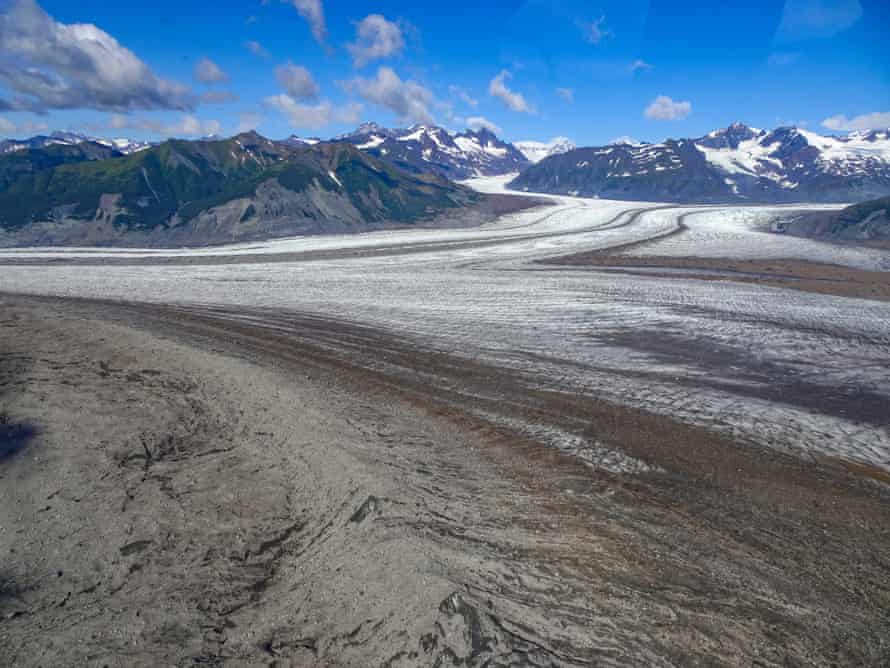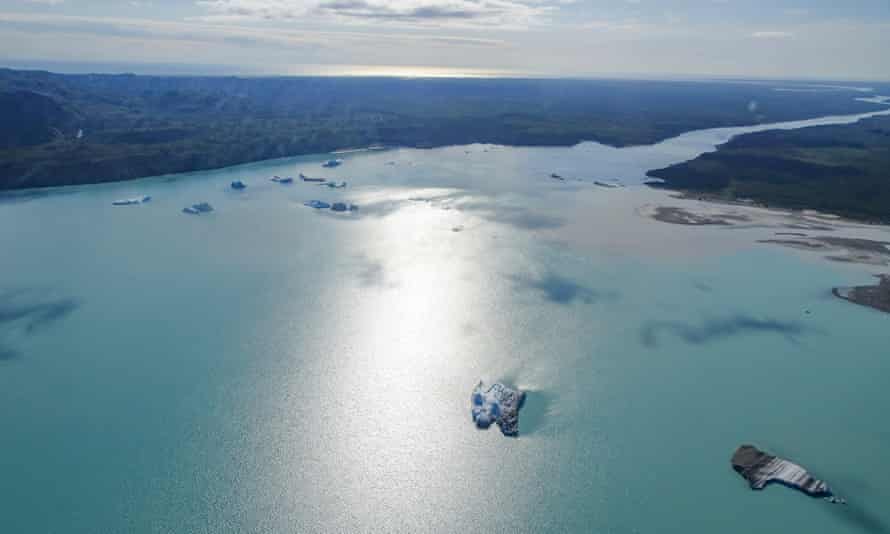As glaciers around the world recede rapidly owing to global warming, some communities are facing a new problem: the sudden disappearance of their rivers.
River piracy, or stream capture, is when water from one river is diverted into another because of erosion or, in this case, glacier melt.
Scientists predict as we move towards a world with far fewer glaciers, land that has been continuously covered by ice for many centuries will become ice-free, thus redirecting rivers in high mountain areas.
In most instances, the redirection will be inconsequential. But in some areas with various user groups that rely on the river’s flow, the changes might have a more significant impact.
“Glaciers by and large around the world are retreating,” said Dan Shugar, a geoscientist at the University of Calgary. “That enhanced retreat that we’re seeing now, we know unequivocally, that is due to climate change.”
Shugar was a lead scientist who documented the first known case of river piracy in modern times in 2016 in Canada’s Yukon Territory. Then, Canada’s largest glacier melted so quickly it diverted a large river, and thus significantly reduced the water level of a lake it fed.
For hundreds of years, the Slims River, or A’ay Chu, carried meltwater northwards from the vast Kaskawulsh glacier into the Kluane river then into the Yukon River towards the Bering Sea.
But in spring 2016, a period of intense melting of the glacier permanently redirected the meltwater of the A’ay Chu towards a steeper gradient east via the Kaskawulsh River, into the Gulf of Alaska thousands of miles from its original destination.
Now, scientists are turning their attention further downstream, to Alaska.
A rapidly retreating glacier within Glacier Bay national park and reserve in Alaska is expected to change the course of a mighty river it feeds, the National Park Service geologist Michael Loso predicted in a paper published last month, and with it, demand adaptation from theecosystems and people who rely on the flow.

The Grand Plateau glacier in southern Alaska is about 350 metres thick at its tongue, and has long served as a barrier for the Alsek River. The waterway originates in the St Elias mountain range in Canada and flows south into Alaska, entering the Pacific Ocean in a channel that flows through Dry Bay, an area known for fishing and rafting.
But over the next three decades, Loso and colleagues predict the Alsek will abandon its current channel at Dry Bay in favour of a steeper outlet 17 miles (28km) south-east, a pathway freed by the Grand Plateau glacier, which is thinning at a rate of up to 10metres each year.
Loso began studying the area last year when he realised the predicted new outlet for the Alsek River lay within national park designated wilderness, a more stringently regulated area where many commercial and some traditional activities were prohibited.
“What we’re talking about is the river migrating out of the preserve and into the park,” he said. “If this was some endangered species that everyone was worried about, you might go, ‘Good, it’s migrating into a more protected area. Good for it!’ But the river’s not an endangered species. It’s a resource that is doing just fine. But it’s going to leave all those human users behind.”
While scientists cannot predict the impact of an “imminent” river piracy event, they can look to similar situations to gauge the impact on ecosystem and human user groups.
Carmen Wong, an ecologist at Parks Canada, said she witnessed a massive landscape change in just over a few days as a result of the 2016 river piracy event. “It caused one river to go dry and another to pick up its water and go to an entirely different ocean,” she said. The result left Kluane Lake, the largest body of water in the Yukon, with water levels 1.7 metres lower than normal.
“There are still a lot of unknowns,” Wong said, including the impact on trout, and spawning salmon that swim up the corresponding river to return to their native spawning grounds.
Kluane First Nation, a traditionally nomadic indigenous group settled along Kluane Lake in Burwash Landing, Canada – 40 miles from the A’ay Chu river – is still dealing with the consequences of the 2016 river piracy event.
Chief Bob Dickson said about 100 residents living along the lake heavily supplement their diet with traditional foods, such as salmon and moose, sourced from the lake and hunting grounds accessed by crossing the lake in a boat. But with lake levels so low, the boat landing towers like a diving board above the water’s surface.

In response, the tribe is working with the local government to build a new boat launch a few kilometres outside of town. They will also have to locate new salmon spawning grounds as the fish have been displaced from their ancestral hunting areas, where traditional knowledge has been passed down for generations. “It’s learning the lake all over again,” Dickson said.
By studying the anticipated river piracy event in advance, Loso said the National Park Service hopes to mitigate the impact on local fishers, hunters and recreational users. Adaptation, in this case, might mean lobbying Congress for a wilderness designation change within the park.
“It’s going to be complicated,” Loso said. “It’s going to involve a combination of people who use that area changing their expectations and their plans and their patterns of behaviour to accommodate the river not being there.”
Across the globe, Shugar and Loso predict events like these will become increasingly more common in glaciated mountainous areas.
In Iceland, rapid glacial retreat is also changing the course of rivers. The most striking case in the island country took place in 2009, when a glacier feeding the Skeidara River retreated, leaving the longest bridge in Iceland – 900 metres long – over dry land.
Loso is not worried about local ecosystems: “The world that is diminished by the loss of its glaciers is enhanced by the addition of whatever replaces them,” he said. “The river will be fine, but the people are going to be inconvenienced – or more.”